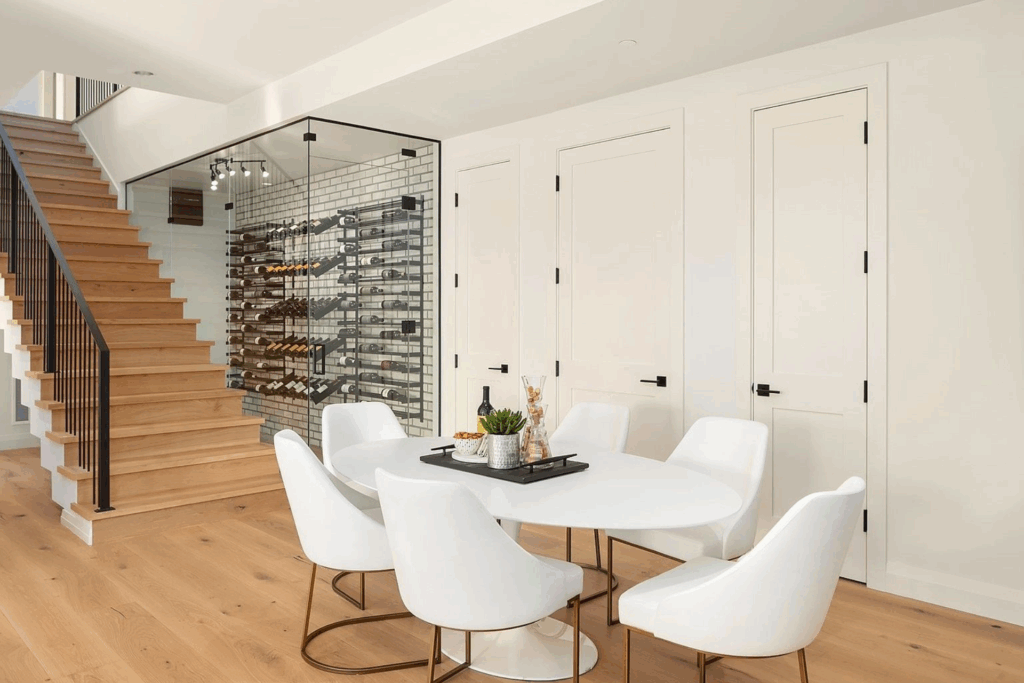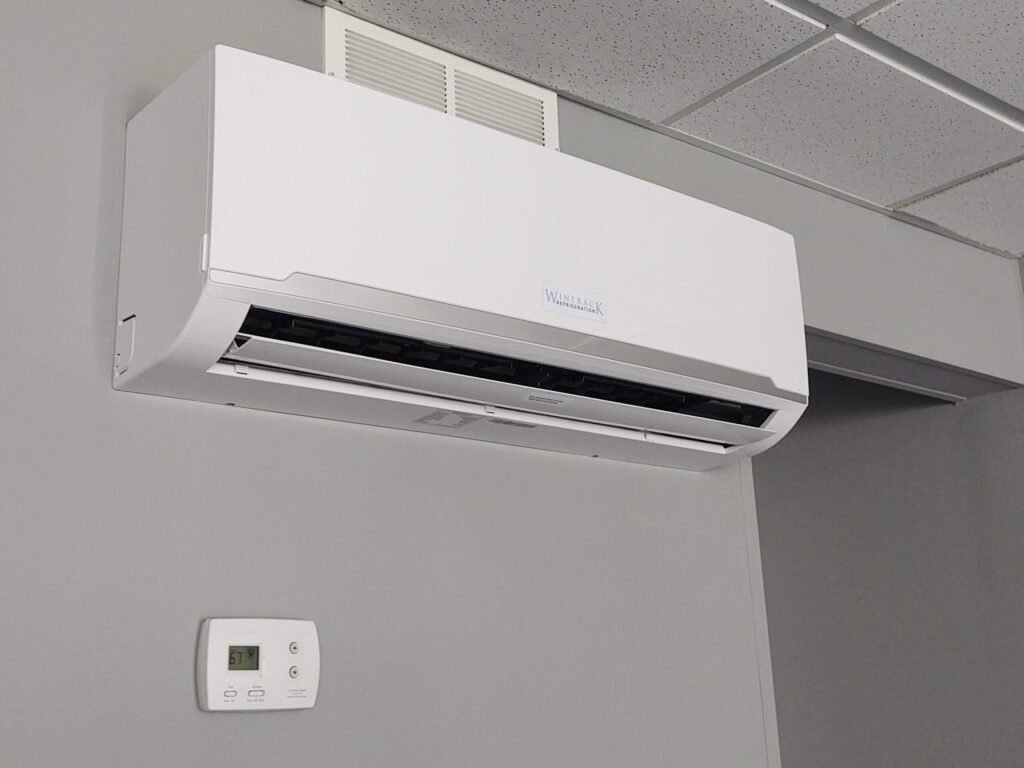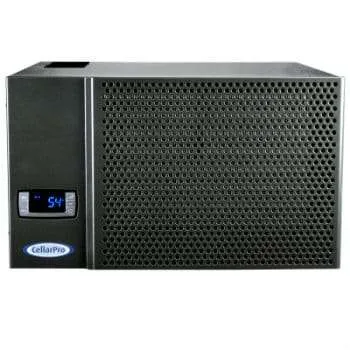If you’re a wine enthusiast or planning to build your own wine cellar, one of the most important decisions you’ll face is whether or not you need a cooling unit. While storing wine might seem simple enough, there are several factors to consider to ensure your wine ages in the best possible conditions. In this blog, we’ll explore the reasons why you might need a cooling unit for your wine cellar, how it works, and when it’s essential for proper storage.
What Is a Wine Cellar Cooling Unit?
A wine cellar cooling unit, often referred to as a wine fridge or wine cooling system, is a specialized appliance designed to regulate the temperature and humidity levels inside a wine cellar. Unlike regular air conditioning systems, these units are built to create a stable environment that simulates the conditions of a wine cave — cool, dark, and humid.
Key Functions of a Wine Cellar Cooling Unit:
Temperature Regulation: Maintains a consistent temperature, typically between 45°F and 65°F (7°C to 18°C), which is crucial for the long-term aging of wine.
Humidity Control: Helps maintain an ideal humidity level, usually around 60-70%, to prevent corks from drying out and wine from oxidizing.
Air Circulation: Ensures proper air circulation to prevent musty odors and promote even aging.
Factors That Determine the Need for a Cooling Unit
1. Climate Conditions
One of the biggest factors that affect the need for a cooling unit is the climate of your area. If you live in a region with extreme temperatures—either very hot summers or freezing winters—having a cooling system is crucial to maintain consistent conditions for your wine.
Hot Climates: In regions where temperatures can regularly exceed 80°F (27°C), a cooling unit is essential to prevent wine from aging too quickly or becoming damaged by heat.
Cold Climates: In colder climates, a cooling unit can help regulate the cellar’s temperature during the winter months, ensuring that it stays within the optimal range for wine storage.
2. Size and Location of the Wine Cellar
The size and location of your wine cellar play a significant role in determining whether a cooling unit is needed.
Small, Insulated Cellars: If you have a small, well-insulated wine cellar in a climate-controlled part of your home, you might not need a cooling unit. The ambient temperature might be enough to keep the wine at the proper storage temperature.
Large or Uninsulated Cellars: For larger or poorly insulated spaces (like basements), a cooling unit is necessary to compensate for fluctuations in temperature and humidity, especially if the cellar is not naturally cool or consistent year-round.
3. Wine Storage Time
If you’re storing wine for a short period, say a few months to a couple of years, the need for a cooling unit might not be as urgent. However, if you’re aging wines for several years or decades, consistent conditions become critical. A cooling unit helps slow down the aging process, keeping your wine fresh and preventing spoilage.
Benefits of Using a Cooling Unit in Your Wine Cellar
1. Preserves Wine Quality
The primary reason for installing a cooling unit is to preserve the quality of your wine. Proper temperature and humidity control prevent rapid aging, spoilage, and premature oxidation, which can ruin your collection. A cooling unit also helps to avoid temperature fluctuations that might cause the wine to expand and contract, affecting the cork seal and potentially introducing air into the bottle.
2. Ensures Consistent Storage Conditions
The key to aging wine properly is maintaining a consistent environment. Wine is sensitive to temperature and humidity fluctuations. A cooling unit ensures that your wine cellar remains within the optimal range for storage, reducing the risk of spoilage or degradation.
3. Protects Against Unpredictable Weather
Even if you live in an area with a temperate climate, weather patterns can be unpredictable. For example, a sudden heatwave can cause temperatures to soar, and a cooling unit will help you avoid damage from extreme conditions. If you live in an area prone to humidity changes, the right system will regulate moisture levels, ensuring the corks remain in good condition.
4. Improves Cellar Air Quality
Wine cellars can accumulate musty or stale air over time, especially if they are closed off. A cooling unit helps to improve air circulation and keep the cellar environment fresh. Good air quality is essential for preventing mold and mildew, which can compromise the taste and smell of your wine.
When a Cooling Unit Is Not Necessary
While a cooling unit offers many benefits, it might not be necessary for every wine cellar. Here are a few situations where a cooling system may not be required:
1. Wine Storage for Short-Term Use
If you’re storing wine for only a short period (a few months), the ambient temperature in your home or basement may be sufficient. In this case, it’s more important to ensure the space is cool and dry, with no exposure to direct sunlight.
2. Cellar in a Controlled Environment
If your wine cellar is in a part of the house that stays consistently cool (like a basement) and has good insulation, you may not need a cooling unit. Just make sure the temperature does not fluctuate dramatically, and the humidity level stays in the ideal range.
3. Small Wine Collection
If you have a small collection of wine (less than 50 bottles), you might not need a full-fledged cooling unit. A smaller wine fridge or basic cooling unit might be sufficient to keep things in check, especially if you’re not aging wine for long periods.
Choosing the Right Cooling Unit for Your Wine Cellar
If you determine that a cooling unit is needed for your wine cellar, it’s important to choose the right one. Here are some factors to consider:
1. Cooling Capacity
The cooling capacity of a wine cellar cooling unit is usually measured in BTUs (British Thermal Units). The larger your cellar, the higher the BTU rating you’ll need. Make sure to choose a unit that matches the size of your cellar to ensure efficient cooling.
2. Noise Level
Wine cellars often double as a quiet, relaxing space. Consider a cooling unit that operates quietly to avoid disrupting the atmosphere of your cellar.
3. Energy Efficiency
Like any appliance, cooling units consume electricity. Look for models with energy-saving features to minimize long-term operating costs.
4. Installation Requirements
Some wine cellar cooling units are built into the wall, while others are freestanding. Make sure the unit you choose fits well within the space you have and that you can easily install it.
Conclusion: Do You Need a Cooling Unit for Your Wine Cellar?
The decision to install a cooling unit in your wine cellar ultimately depends on the climate in your area, the size of your cellar, how long you plan to store wine, and the level of quality you expect from your wine. While it’s possible to store wine without a cooling system in ideal conditions, a cooling unit can be a worthwhile investment for anyone serious about aging wine properly or storing large collections. It ensures consistent temperature, humidity, and air quality, all of which contribute to maintaining the integrity of your wines for years to come.
If you’re unsure whether you need one, it’s always a good idea to consult with a wine cellar professional who can assess your space and make personalized recommendations based on your storage needs.






